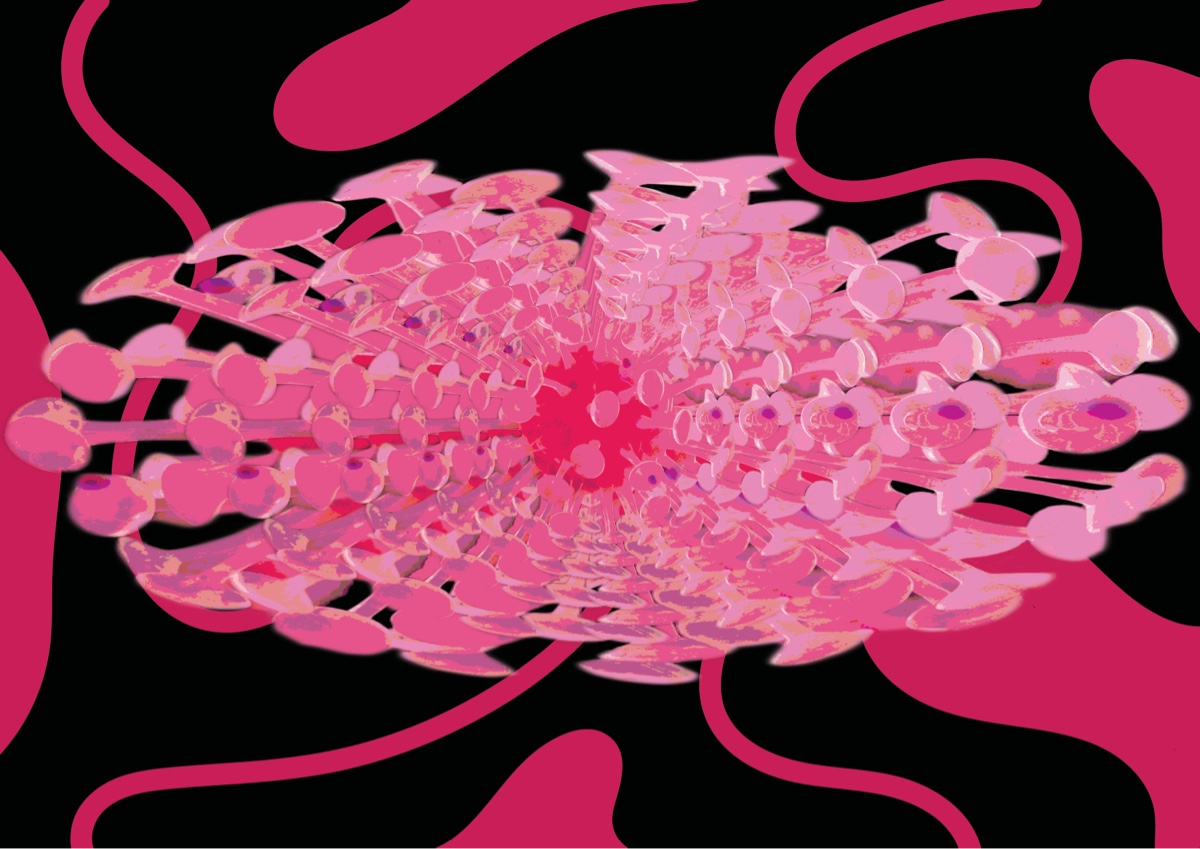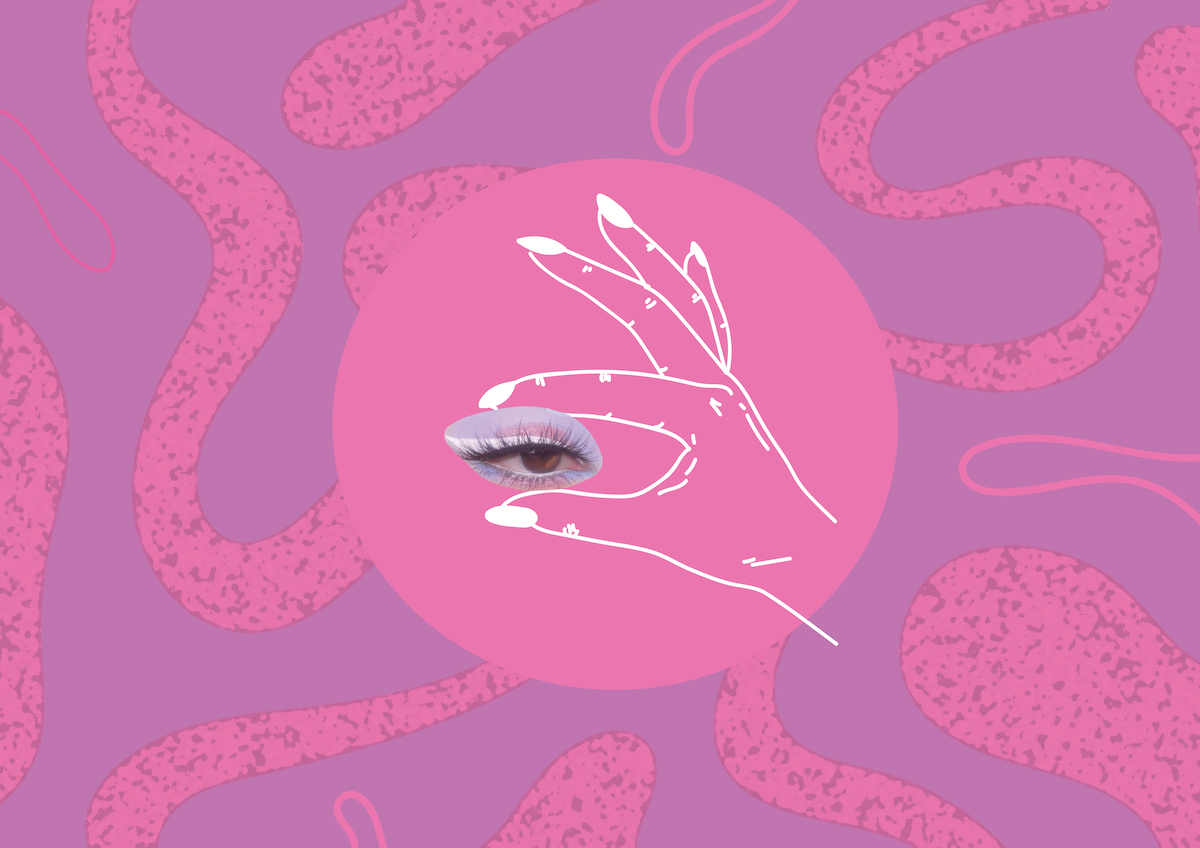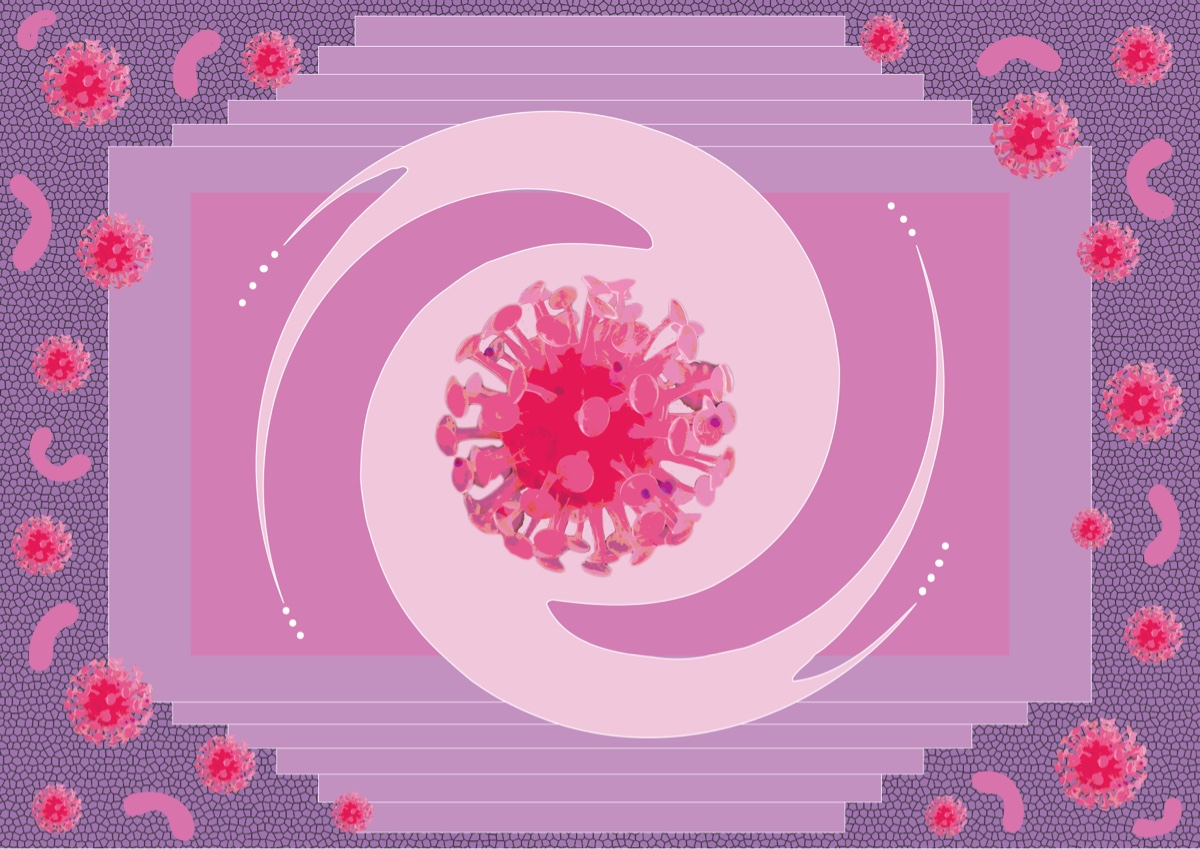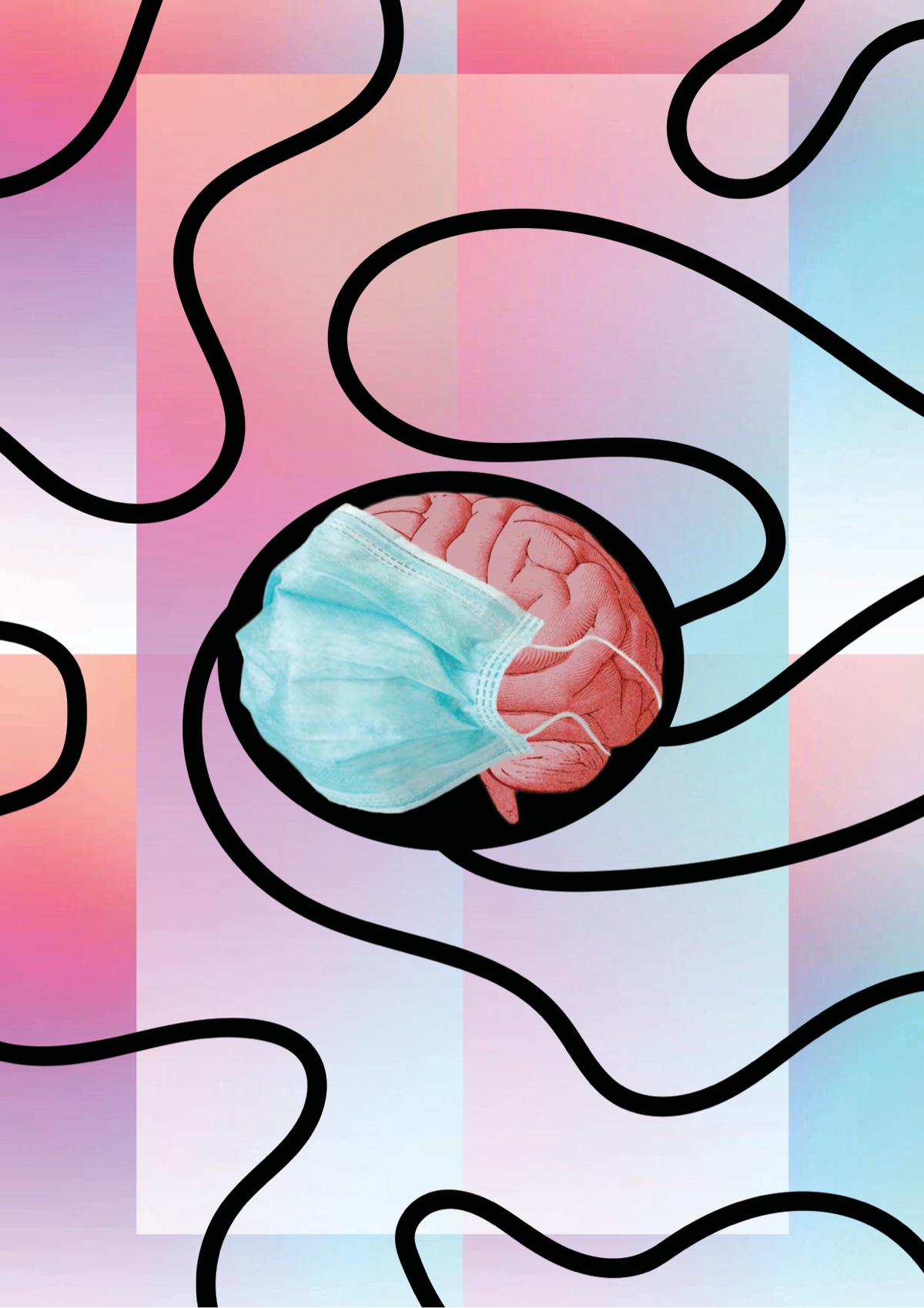If you open any social media app or news site, chances are the first thing…
How to Cope with the COVID-19 Pandemic
Two Mental Health Professionals Tell Us How7 May 2020
April has gone and May is here. The good news? The start to a flattening of the curve can be seen in places like Germany and France. The bad news? The COVID-19 pandemic is still very much impacting our lives. We sat down with two mental health professionals - Parissima Taheri-Maynard, a psychologist, educator, community worker, and public speaker, and Ariane Fuechtner, a Somatic Experiencing Practitioner, non-medical practitioner for psychotherapy, trainer, and coach - to find out what we can to continue to cope:
During times of high stress, people with pre-existing mental health issues, histories of self-harm, and substance abuse may be at higher risk for relapsing and falling back into old patterns. Do you have any advice for those whose conditions have either worsened or are at risk of worsening due to the spread of COVID-19 and the measures many countries have taken in order to “flatten the curve”?
Ariane: One of the key things that occurs when we experience a traumatic event, such as the current global pandemic, is that we get taken out of the present and are brought back to past memories and past sensations. Our bodies go into survival mode and we are trapped into our stress responses, which are fight, flight, and freeze.
Signs that we are in fight or flight territory include racing thoughts, hyperactivity, difficulty falling or staying asleep, anxiety, panic, irritability or rage. Signs of going into freeze mode are feelings of emotional numbness, exhaustion, or depression. It’s important to understand that these are normal reactions from our bodies to an abnormal event.
We can’t change what we don’t notice, so the first step is becoming more aware of what we’re feeling at any given moment. This means that we need to observe our emotions, rather than being controlled by them. Simply naming our feelings gives us more distance from them, especially when they’re intensely negative.
Movement and sound are just some examples of great ways to discharge stress and engage our body. Expressive arts, including visual arts can also be a safe way of releasing emotion when our amygdala (the part of our brain that plays a key role in processing emotions) is activated and heightened.
Parissima: I’m actually seeing many different reactions from people who have existing mental health struggles amidst this specific situation – and all are legitimate and make sense. Some people who have struggled with a lot of anxiety, for example, before COVID-19, have intensified symptoms now – others [who struggled with anxiety before COVID-19] are actually doing better now than those who did not struggle before.
I think one of the most important things to keep in mind amidst this situation is that all feelings are okay. There is a misconception that good mental health means always being happy but really, good mental health is actually being able to move between various emotions, instead of being stuck in them, whether that be highs or lows.
Floating between feeling really great one moment to being really on edge the next – even multiple times a day! – is okay.
If we try to accept [our emotions] and not judge ourselves for them, then we are doing something good for ourselves and our mental health.

Many people who were previously in good mental health have since developed anxiety or other mental health problems because of COVID-19, feelings of uncertainty, fear about money, self-isolation, etc… They might feel like it is impossible to get help during this time (for example finding a therapist who takes on new clients right now). What can they do on an individual basis, when is it time to seek outside help, and how can one go about doing so in the middle of a pandemic?
Ariane: I see a lot of unresolved trauma being washed up by the crisis, stuff that people thought they had already dealt with or that was swept under the proverbial rug for a long time. One of the primary tenants to regulating the nervous system is orienting oneself to the here and now.
If what you are experiencing gets too overwhelming, you should definitely see a therapist. If you are looking for help you can call the emergency support hotlines, or find a therapist available through the public health system [if your country has one]. If you can’t find a therapist covered by public health insurance, there are also many private therapists that still accept clients.
During these times it is also important that we all look out for each other. How can one support people who are struggling with their mental health right now? What can one do on an individual level? What changes need to be made on a broader level to support people struggling with their mental health in times of crisis?
Parissima: I am a big advocate of community care as well as self care, especially in most countries where community care is an important factor for filling in the gaps the state fails to fill. Access to good mental health support is difficult and selective on a good day. During COVID-19 it is even more difficult. However, I am seeing a lot of community care going digital, for example, there is BIPOC community care going on in Vienna [where I am based], but also a lot in other countries. Now that it is all online, we can take part in things going on in Germany, in the UK, or even the USA – often free of charge or on a sliding scale basis.
But community care does not need to be set up in such an official way either – it is enough to make sure to stay in touch with friends at this time, especially those who are alone or living in difficult conditions right now. It is also important to know the emergency hotlines and resources available in your city when you really need them, for example in a psychiatric emergency.
Xenophobic and racist hate crimes have been on the rise ever since the outbreak of COVID-19. How can others be an ally to and protect those from our communities vulnerable to racist attacks?
Parissima: I think being an ally to each other should be so deeply ingrained in our behaviour that it doesn’t require any group to be specifically discriminated against to lead to us being more sensitive and showing more solidarity than on any other day. There are many amazing resources, I’m thinking now specifically the workshops by Arpana Aischa Berndt and Maja Bogojević on “How to be an ally”.
It makes sense for all of us to continuously reflect the privileges we have and how we can best support each other. I think the most basic step is to believe each other. It sounds so easy, but so often specific groups are not deemed as credible in speaking about their own experiences. If we believe that people have specific negative experiences which can lead to fear or needing support we are much quicker to act and step in, but that first step is really hard for many people because of various aspects of internalised hetero-, cis-, middle-class and white normativity and supremacy.

There are many individuals who have been classified as essential workers and still have to leave their home and travel to work. Many of these individuals may feel an extra level of risk for catching the virus. How can they cope?
Ariane: Based on my personal observations with clients that are “essential workers”, they actually seem to be less afraid than the general public, because they get value out of their work. A lot of them are dealing with anger though, such as not having enough supplies or getting the support they need, inconsiderate and reckless customers and not getting financial recognition for the hard work they do. They can also run the risk of being overwhelmed and burned-out in the long run.
A lot of people are feeling a huge sense of uncertainty and loss of control about their future. How can this be addressed from a mental health point of view?
Ariane: One of the main premises around understanding our behaviour and stress management is to understand that everything we do; we do to feel good. We are all trying to self- regulate, whether we are doing yoga or punching someone, eating a salad or smoking a cigarette. All behaviour, no matter how dysfunctional it might seem from the outside, is an attempt to feel good and to self-regulate. As these states are so hard for us to handle, sometimes we develop these dysfunctional behavioural patterns. We need to find healthy ways to feel our emotions and to release stress.
Also focus on things that you do have control over – your room, your clothing, the food you eat, the movies you watch, the friends you call etc (as long as what you are focusing on does not trigger past trauma, disordered thinking/actions, and/or issues with control). These things help to anchor and ground us when the bigger picture gets chaotic.
Parissima: We all have different coping mechanisms and need different things. Some of us right now may be the rational planning type, while others may be working mainly with our emotional brain at the moment. Some of us may need to focus on the fact that this will [eventually come to an] end to get through this difficult time, others may need to practice staying in the now; no matter how uncomfortable.
Many of us have been in this situation for about a month and for many of us it will continue a while longer. Living only in a state of worry about the future after this ends can be anxiety-triggering. Accepting that this is how it is right now, whether that’s with daily routines like waking up at a particular time, trying to organise your day in a way that makes sense to you, and finding time for small pleasures or things to be thankful for each day, is important.
While most governments who have asked their citizens to self-quarantine have advised only going outside for essential reasons, they also allow for personal exercise. Is exercising outdoors safe? How important is it for our mental and physical health?
Parissima: The whole question of physical exercise assumes that everyone is able to physically exercise. There are many reasons why someone may not be able to incorporate this into their day – from physical and/or psychological limitations, to space, access, time and permission. I am always super critical of these “general advice” statements, because they usually don’t include everyone, and they give a wrong perception that it is everyone’s individual responsibility and ability to feel better. “If you don’t work out at home for X amount of time, then of course you’re feeling bad”. It is just never that easy and I’m not sure those statements help anyone. Many people surely feel better when working out, at home or outside. Many people have tried and don’t, and many have legitimate reasons for not trying.
Ariane: I absolutely recommend exercising outdoors (if you are able too). Physical activity can use up some of this fight or flight energy. And exercising can just mean walking, exploring your neighbourhood as if you were seeing it for the very first time. If necessary, you can go early in the morning or late at night to avoid any crowds.

Many people are consuming news and social media content about COVID`19all day. How can they strike a balance between staying informed about the current situation and staying mentally healthy?
Ariane: Try to dedicate a certain amount of time to following the news and stay offline the rest of the time. Stay off of news outlets that trigger more anxiety or trauma, and only check reliable sources for information. For some people, it is helpful to stick to a balanced routine. It can also help to journal personal experiences.
The pandemic has moved the majority of the world indoors. Schools have gone online and many companies that are able to do home office are having their employees work remotely. Although this pandemic has shaped all of our lives, our tendency to try to continue to be productive and go about lives as normally as we can has the unintended consequence of making many people who are not in the emotional state to “function as usual” or utilize this time to be extra productive feel bad about themselves. How do we balance trying to continue to work and pick up that new hobby we always wanted to start now that we are stuck indoors and giving ourselves enough time and mental space to process the situation at hand?
Ariane: Ignore all that coronavirus-inspired productivity pressure, and know that you are not failing. Let go of all of the ideas you may have about what you should be doing right now.
It is perfectly normal and appropriate to feel lost during this initial transition. Your body might also be stuck in a flight, fight or freeze response.
Shifting from a state of anxiety to some form of inner stability and “new normal” will require patience, practice and self-compassion, as well as the ability to ask for help if necessary.
Parissima: It is so difficult to give a one-size-fits-all answer. I have heard very different feelings and situations from different people. I know of people who want to be productive but cannot bring the energy to do what they set up for themselves, and others who are feeling very productive and energetic and finally feel they have the time to do whatever they’ve put aside. I know those who are happy about their level of productivity, those who wish they were doing less, and those who wish they were doing more. I know some people who are still working (at their workplaces or at home) who are glad to have routine in this time, and those who are but wish they also had this time as a break.
Shaming ourselves and society as a whole based on our level of productivity is deeply ingrained in the capitalist system we are all living in, but also in mainstream psychology where there are rules for how to be happy and binaries of what is good and bad.
I try my hardest not to work in that world, especially not in a global emergency situation like the one we are finding ourselves in right now. Not everyone needs to be productive right now, or vice versa, and being over-productive can also be a way to avoid feelings and distract ourselves from trauma. But who are we to tell everyone that they are not allowed to distract themselves right now? What gives us the right to judge someone else’s coping mechanisms?
Of course we shouldn’t have to exist in exhaustion, and communities such as but not only including BIPoC are often being productive even on the background in terms of emotional labour for example keeping in close contact to family abroad and their needs, and so on. Does that emotional labour ever get counted as being productive? Usually it doesn’t.
_
Parissima Taheri-Maynard is a psychologist, educator, community worker and public speaker living in Vienna Austria who currently works as the psychosocial head of PROSA – Projekt Schule für Alle – a school for young refugees aged 16+. She is also the founder of Wir sind auch Wien, a platform for BIPoC (Black, Indigenous and People of Colour) focused mental health.
Ariane Fuechtner is a Somatic Experiencing Practitioner, non-medical practitioner for psychotherapy (HP Psych), trainer and coach on individual and organisational resilience, communication, behavioural trainer, and Member of ACT Berlin, association of counselors and therapists.
Original artwork created exclusively for YEOJA Mag by Nilufar Zarre. For all COVID-19 related articles click here.








